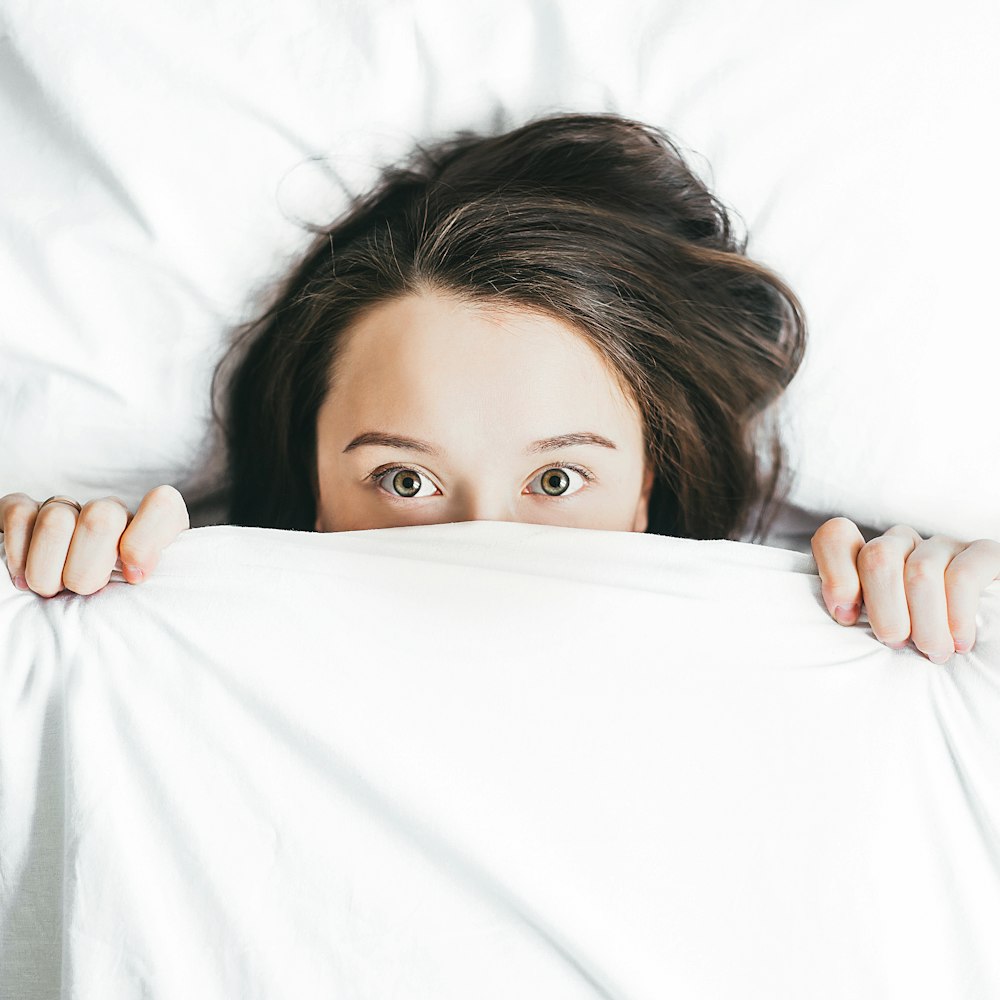Why Am I Having Trouble Sleeping At Night?
That’s perhaps one of the most common troubles being faced by so many of us, irrelevant of age. In today’s modern lifestyle, sleep happens to have become the least of our priorities. Everything is so fast paced, and in order to catch up with that pace, sleep tends to get severely compromised. We tend to accept it as a natural phenomenon, something that is happening to everyone around us. But we don’t realise that not getting sufficient sleep, we are depriving ourselves of so many health benefits that sleep brings in for us.
Importance of Sleep and Sleeplessness
While doctors suggest that an average adult should ideally be getting 6 – 8 hours of sleep each night, it has become a dream of sorts for many. Sleep deficiency is becoming increasingly common among people all over the world. We spend about one-third of our day trying to get some sleep. Yet, over one third of the world complains of suffering from Insomnia. In fact, it is believed that most people face difficulty sleeping at some point in their lives. While the problem was being associated with ageing for a long time, that is not the case now. More and more adolescents, youth, new housewives and mothers are experiencing the plight of insomnia.
Symptoms of Insomnia
Also known as sleeplessness, Insomnia is a sleep disorder which keeps us from falling and staying asleep. The problem is naturally followed by daytime sleepiness, reduced energy levels, irritability and a rather depressed mood. Other symptoms include
- Difficulty falling asleep despite being tired
- Light sleep and waking up several times throughout the night
- Difficulty going back to sleep
- Waking up too early in the morning
- Not feeling well-rested after getting up
- Daytime fatigue and frequent headaches
- Difficulty concentrating during the day
But the Question Remains, Why?
There are various possible reasons that could contribute towards the symptoms of sleeplessness. Some of the most common ones include poor sleeping habits, diet and lifestyle choices, medical conditions and family history, etc. While some of these may need you to make simple yet conscious efforts in your everyday life, others might require expert attention. But first, you need to figure out where the problem lies. Let us look at some possible causes of insomnia.
Possible Causes of Sleeplessness
– Inconsistent sleep schedule tends to disrupt our biological clock.
– Longer and frequent daytime naps naturally reduce our need to sleep at night
– Too much stimulation before bedtime is one of the most common factors that – contributes towards a delay in falling asleep.
– Indulging in unhealthy eating practices, especially during later part of the evening. Keep those hearty meal options for lunch time.
– Consuming too much alcohol or caffeine. While caffeine works as a stimulant and keeps you up, alcohol and caffeine both lead to frequent urination during night, which significantly affects your quality of sleep.
– Lack of physical activity all through the day. Think about it. If you have not tired your body or your brain during the course of the day, they would actually not look forward to relax and sleep when its night time.
– Lack of exposure to sunlight, which could affect the functioning of your biological clock
– Cold and uncomfortable sleep environment obviously makes it difficult to fall and stay asleep.
– Stress, anxiety or depression – Chronic feelings of worry lead to over-thinking and naturally, keep you from falling asleep in the first place.
– Certain medications for chronic health conditions could contribute towards a sleep deficiency
– Chronic health conditions and even some common ailments can affect your sleep. Cold, cough, joint pains, toothache, etc. are some normal issues which make it tricky for us to sleep through the night.
Some Solutions
The solution to most of these sleeping issues lies in doing just the opposite of those, and doing it right.
– You need to sleep as well as wake up around the same time, every day. And you should make conscious efforts to develop it as a habit, and very soon your biological clock will accept it as a natural way of life.
– Keep your bedroom and surroundings sleep-friendly. Sleep in a dark and quiet space, and keep the temperature comfortable.
– Try listening to some soothing music, or read a comforting book right before sleep.
– Eat a light dinner, and have it a couple of hours before sleep. Avoid spicy or processed foods, and do not drink too much water.
– Also, do not go high on alcohol or caffeine a few hours before bedtime.
– Smoking near sleep time also tends to keep you from sleeping, as it makes you anxious. Avoid smoking, and better still, quit it altogether.
– Indulge in sports, workouts or any physical activity during the day. Do not do it closer to bedtime though, or your body would be too worked up to relax and fall asleep.
– Avoid longer and frequent day time naps, as this could prevent you from getting a nice and long sleep during night. Although you need to tire yourself out, so that your body and mind look forward to sleep.
– Have a nice warm cup of milk, or chamomile tea. While milk soothes our muscles and allows us to have a good night’s sleep, chamomile tea works as a natural sleep inducer.
– Disconnect from any electronic devices at least an hour before bedtime. These include television, mobile phone or laptop. Instead, spend some quiet time with your family or yourself. Introspect, think happy thoughts and may be, plan your to- do list for the following day. This is an excellent practice, something that many successful people have confessed to be doing.
Some Tips for Sleeping Well
- Consistency helps. Try to sleep and wake up at the same time everyday.
- Avoid the urge to indulge in daytime naps, or that might affect your quality of sleep at night.
- Indulge in physical activities during the day, something that tires you enough to look forward to a good night’s sleep. Do not do that closer to bedtime, though.
- Give yourself sufficient exposure to sunlight during the day, and do not use very bright lights after evening hours. This is needed so as to be in sync with your biological clock.
- Keep a check on your diet. Eat light during dinner, avoid spicy or processed foods and definitely avoid alcohol or caffeine hours before you hit the bed.
About the Author
Dr Sonica Krishan is Author and Speaker in the areas of Healthy and Joyous Living through Ayurveda, Meditation, Yoga and other Contemplative practices. She is a leading Ayurveda Professional in India. She is also Health Writer, Columnist, Editor, Ayurveda Consultant and Holistic Healing Coach. Dr Sonica is open for National as well as International Collaborations with interested people / institutions in fields of Ayurveda, Meditation and Yoga.
Dr Sonica Krishan’s Books are available at Amazon
Related Posts
Tips for Good Sleep For Homemakers
What Is Your Sleep Quotient?







Thank you for sharing superb informations. Your web site is very cool. I am impressed by the details that you’ve on this site. It reveals how nicely you perceive this subject. Bookmarked this web page, will come back for extra articles. You, my friend, ROCK! I found simply the information I already searched everywhere and simply could not come across. What a perfect web-site.
It’s really a cool and useful piece of info. I am happy that you simply shared this helpful info with us. Please stay us up to date like this. Thank you for sharing.
Great wordpress blog here.. It’s hard to find quality writing like yours these days. I really appreciate people like you! take care